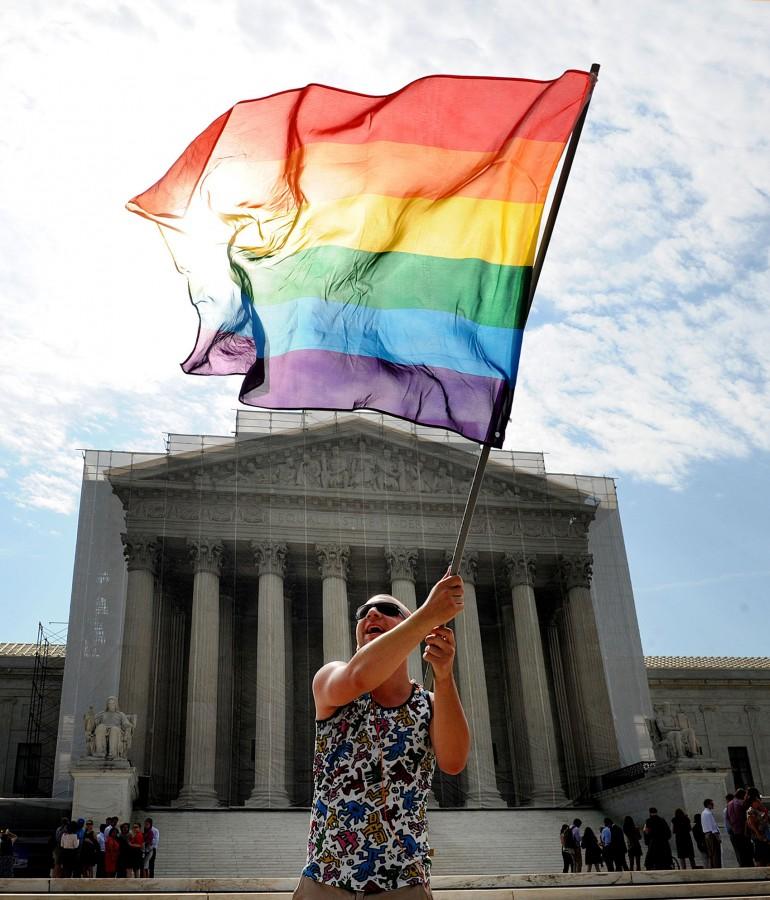Living and working in midst of religious and civil rights
Oliver Douliery/ABACA Press/MCT
A demonstrator waves a flag in front of the U.S. Supreme Court on Monday, June 24, 2013, in Washington, DC. The court is expected to rule on a case on the Defense of Marriage Act and other gay rights issues this week. (Olivier Douliery/Abaca Press/MCT)
The Religious Freedom Restoration Act (RFRA), a bill that allows denial of service, employment and housing to people of different sexual orientations that may oppose a business owner’s religious beliefs was introduced to the House of Representatives in Michigan by Jase Bolger (R-Marshall) toward the end of the 2013-2014 session.
While the state waits for resolution of this issue, local students and business owners live and work together while expressing a variety of opinions about the topic.
“I’m not a big religious person, but no matter who a person is, businesses should serve everyone,” sophomore Erika Visel said. “We are protected under the Bill of Rights. Not allowing a person to get the things they need based on who they are is ridiculous.”
Some students think this issue was solved some time ago. The Civil Rights Act of 1964 prevents businesses from refusing to serve customers based on race, color, religion, or nationality, but not sexual orientation.
“Businesses are there to serve everyone, not just one. It doesn’t matter who the person is,” junior John Carnahan said.
Local owner of the Stockbridge Diner, Keith Pawlowski, thinks he is not there to judge other business owners but does not believe the RFRA is right, and will not change his ways for anyone.
“When people come into my restaurant, they are basically coming into my house. They are not going to tell me how to run my business based on their religion and beliefs.”
In agreement with Pawlowski, a local mechanic, who asked to be unnamed for this article, thinks businesses should not be able to refuse service to a person based on religious beliefs, and should be required to serve anyone who comes through the door. He also thinks one who does not serve a customer from religious beliefs are using religion as an excuse for something they are not comfortable with.
“A business who refuses to serve customers based on religion shouldn’t be in business, it’s unequal and should legally be a case of discrimination,” he said.
Students like Jenna Hardy believe the RFRA can be a fair act giving one the rights to express their religion and the person they want to be.
“A business has a right to their personal preferences based on the beliefs they have,” Hardy said. “It’s their rights as a person, but at the same time it is taking away the rights of others.”



